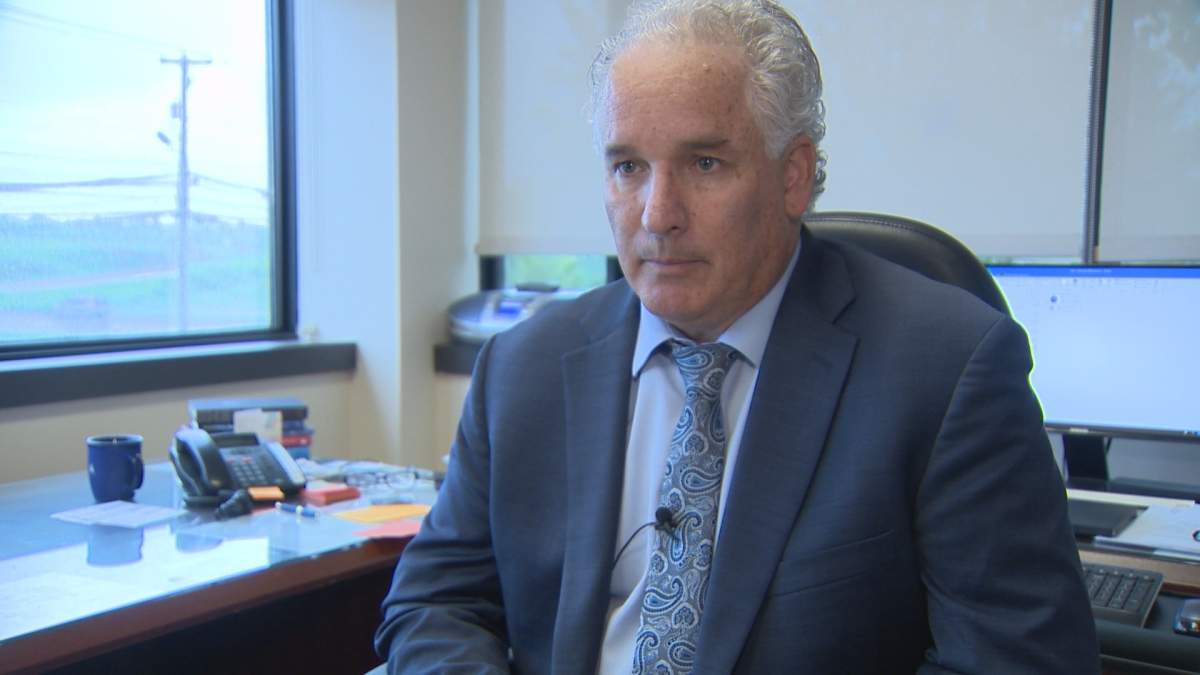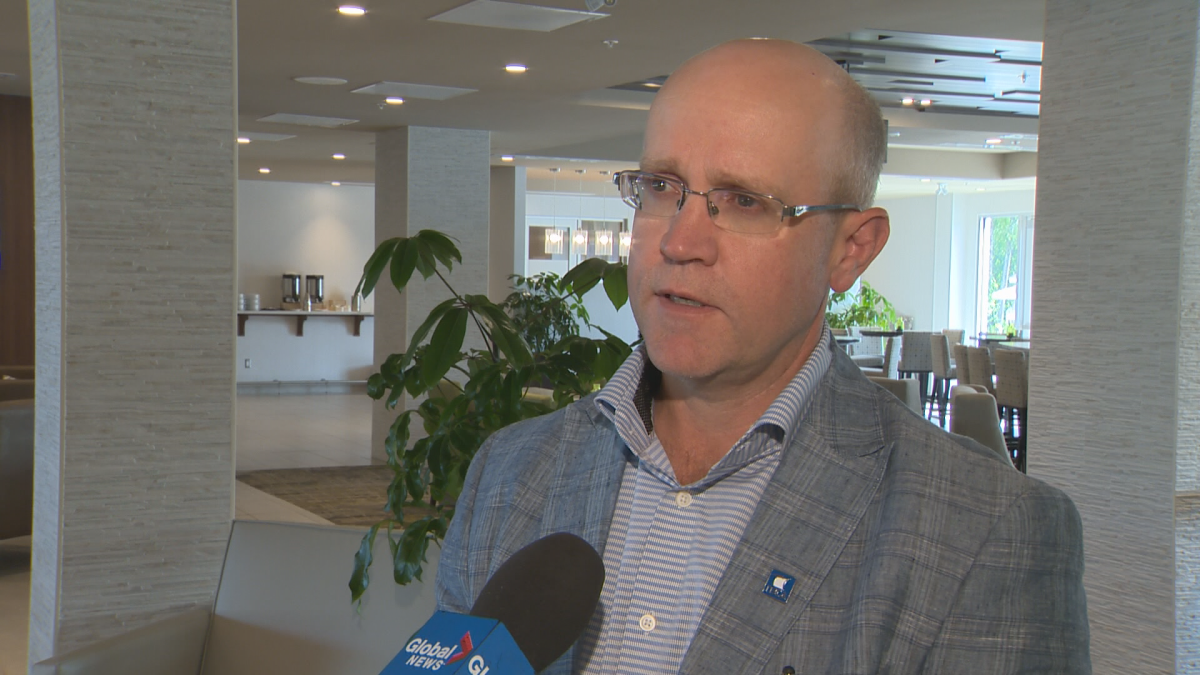While students look ahead to summer vacation, the Anglophone East School District tries to grapple with a funding shortfall of almost $2-million for hiring educational assistants.

Gregg Ingersoll, the district’s superintendent, says they’re short about 60 positions for next year at this point, and aren’t sure how to fill the void.
Ingersoll calls it the biggest educational assistant funding shortfall the district has faced.
“We’re usually able to cover it from the global budget from other budget lines,” he says. “We can cover some of that this year, but we don’t feel confident that we can cover it all.”
A daunting thought for a province that promotes its inclusive education system.
The district (ASD-E) currently has funding for 410 EAs, but needs at least 472, and needs a balanced budget.
He says despite declining enrollment across the province, the number of students is increasing within Anglophone East, in part due to more international students.
READ MORE: 10-year-old Calgary girl competes at international braille challenge: ‘A great opportunity’
“We are growing,” he says. “In our area here in Southeastern New Brunswick, both the Anglophone and Francophone districts, we’re seeing an increase in students.”
He says those trends could change with population changes in the province, but notes that all seven districts are dealing with resource challenges when it comes to EAs.

Get breaking National news
Ingersoll says he’s also noticing a trend of more and more “priority one” students, who require one-on-one attention to be in school.
There are 21 more priority students enrolled for the upcoming year compared to those who are graduating high school, he says.
READ MORE: Brockville school board to lay off 100 employees, says union
George Daley, the president of the New Brunswick Teachers’ Association, calls the shortfall “very concerning.”
“When the students in the classrooms don’t have the resources they need, that falls back onto the teacher to try to make up for that,” Daley says in a phone interview with Global News.
“That creates situations with students who become elevated in classrooms because they don’t have the individual support they need. Sometimes that leads to violent situations, sometimes that leads to situations that students are just disconnected,” he adds.
Daley says despite being one of the highest funded departments in the recent provincial budget, the increase of 2.9 per cent, “basically (keeps) up with inflation.”
“If you look at extra needs of a system, and in a (inclusive education) system that was never properly funded to begin with, then you’re putting folks like Mr. Ingersoll and the folks over at (ASD-E) in a very difficult position of having students that they don’t have the resources to meet their needs,” he says.
But Ingersoll says they have to find a way to hire all 472 EAs.
“None of the options are great options.” And teachers’ salaries, he says, could fill some of the void.

WATCH: The province has declared a whooping cough outbreak in the capital region with five confirmed cases at a middle school in Fredericton. Morganne Campbell reports.
“We’re an educational institution,” Ingersoll says. “We don’t like to do that, but at the end of the day, that’s where the most, biggest amount of money is.”
He says facilities budgets, focusing on maintenance could be another cut.
“That doesn’t make a lot of sense when your schools (have an) average age of 47 years old,” says Ingersoll. “You’re just going to compound an already-serious problem.”
READ MORE: Police called to EMSB special meeting after parents express anger, frustration at board announcement
He says cuts will be made to have the least impact on the system, and is hoping for additional resources from the province if enrollment continues to increase.
Danielle Elliott, a spokesperson for the Department of Education and Early Childhood Development, says in a statement that districts are provided with a global budget for “the number and distribution of students, infrastructure, transportation, and Education Plan initiatives as well as classroom supports.”
“Over the past two years, we have consistently provided increases to address class composition need and we continue to work closely with the districts on this file,” the statement says.
“We are an inclusive education system,” Ingersoll says. “If we need 472 educational assistants then we’ll hire 472; we can’t say to some students, ‘You’re not going to get support just because we don’t have the money,’ we can’t do that.”










Comments
Want to discuss? Please read our Commenting Policy first.